Two critics are stunned by Radu Lupu’s ‘farewell’
mainFiona Maddocks in the Observer:
The solo opening of the (Beethoven G-major) concerto, hushed, poetic, sinewy, heralded an account of daring intimacy, dense with risk. Lupu allows nerve-shattering pauses. This has no connection with the missed notes or insecure passagework or, in one instance, a time lapse between soloist and orchestra. He has always played with an improvisatory quality, as if taking aural dictation from the ether. As a younger man, flowing black hair and beard, he seemed like someone from a Russian novel. Now he’s the hermit, frail beyond his years, down from the mountain bearing wisdom.
Jessica Duchen on JDCMB:
The chairs were out for the returns queue at the Royal Festival Hall on Sunday night. Word was spreading that this might be the last chance for London to hear Radu Lupu play. He has long preferred to avoid the capital’s concert halls – whether because of iffy acoustics, acidic critics or other reasons I could not say – and an appearance with the Philharmonia Orchestra and conductor Paavo Järvi for Beethoven’s Fourth Piano Concerto looked almost too good to be true.
Lupu, 73, is tall and imposing on the platform, yet somewhat frail in gait and balance. His Beethoven came through in parts almost as a memory of the concerto. Yet the unique quality of his playing lies in the touch itself. It’s the transparency of tone, the cushioned finesse of it, and the way he turns a phrase that, in a matter of a few notes, suggests a deep, empathetic humanity and a profound love for the music.
He uses a chair rather than a piano stool and sits at the keyboard almost as others might at a desk, as if making notes (in every sense, of course). He’s thinking aloud with his hands.
If you missed it, you missed it forever.
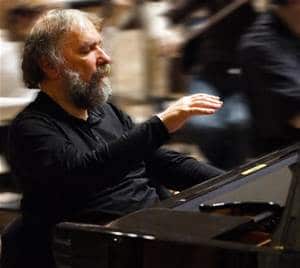
photo: Youtube

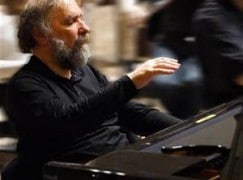

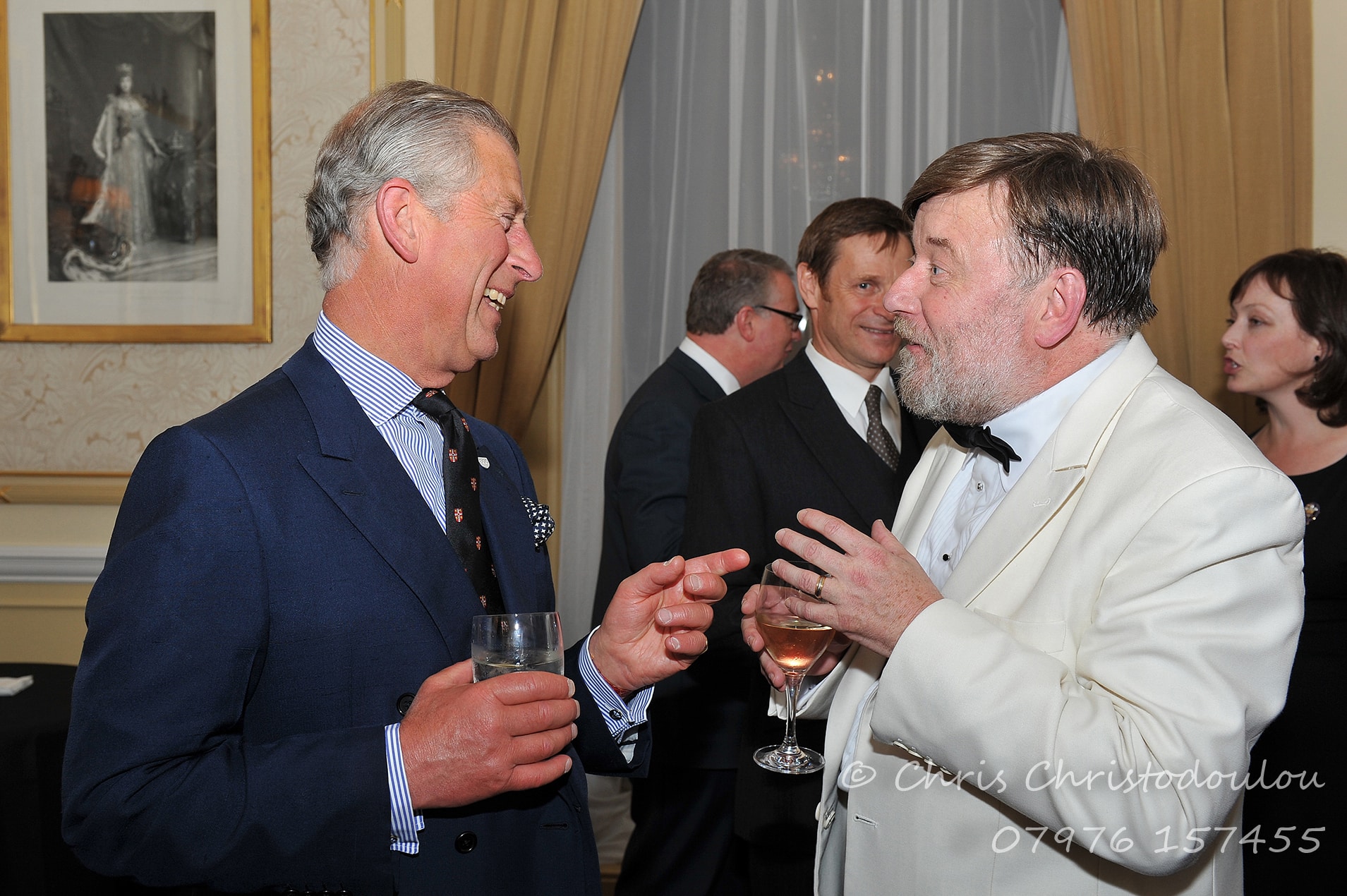
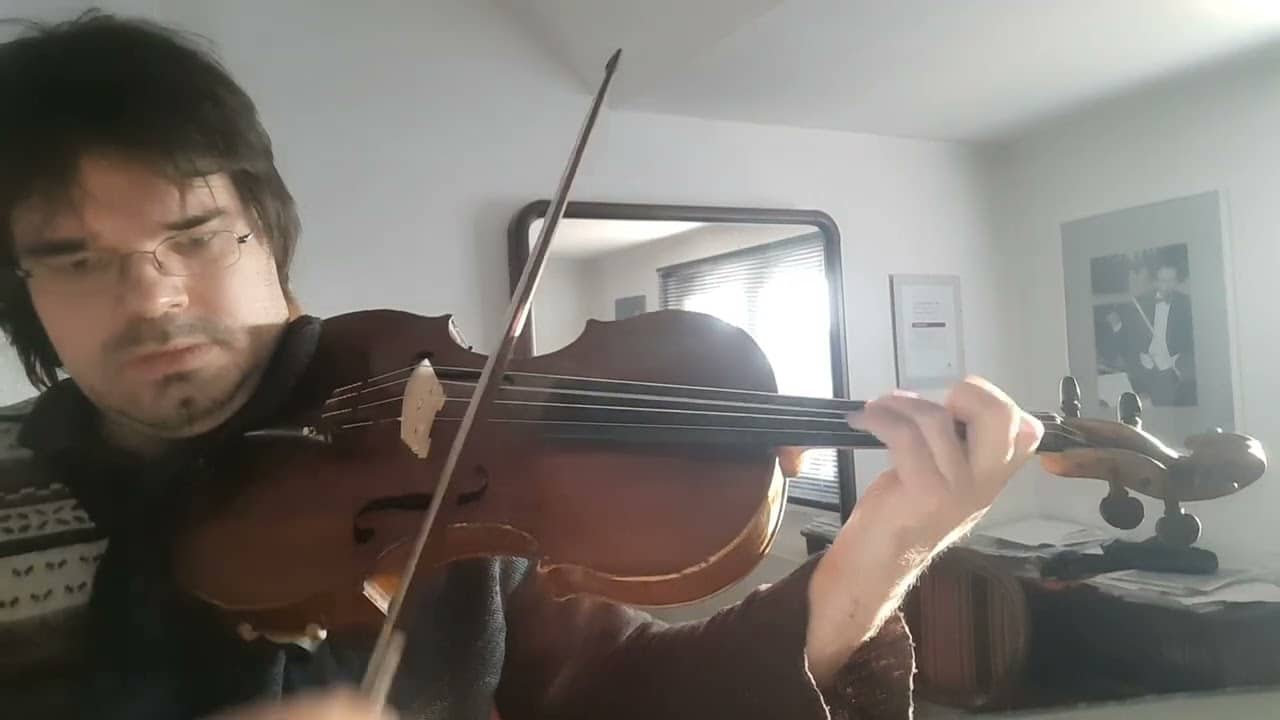
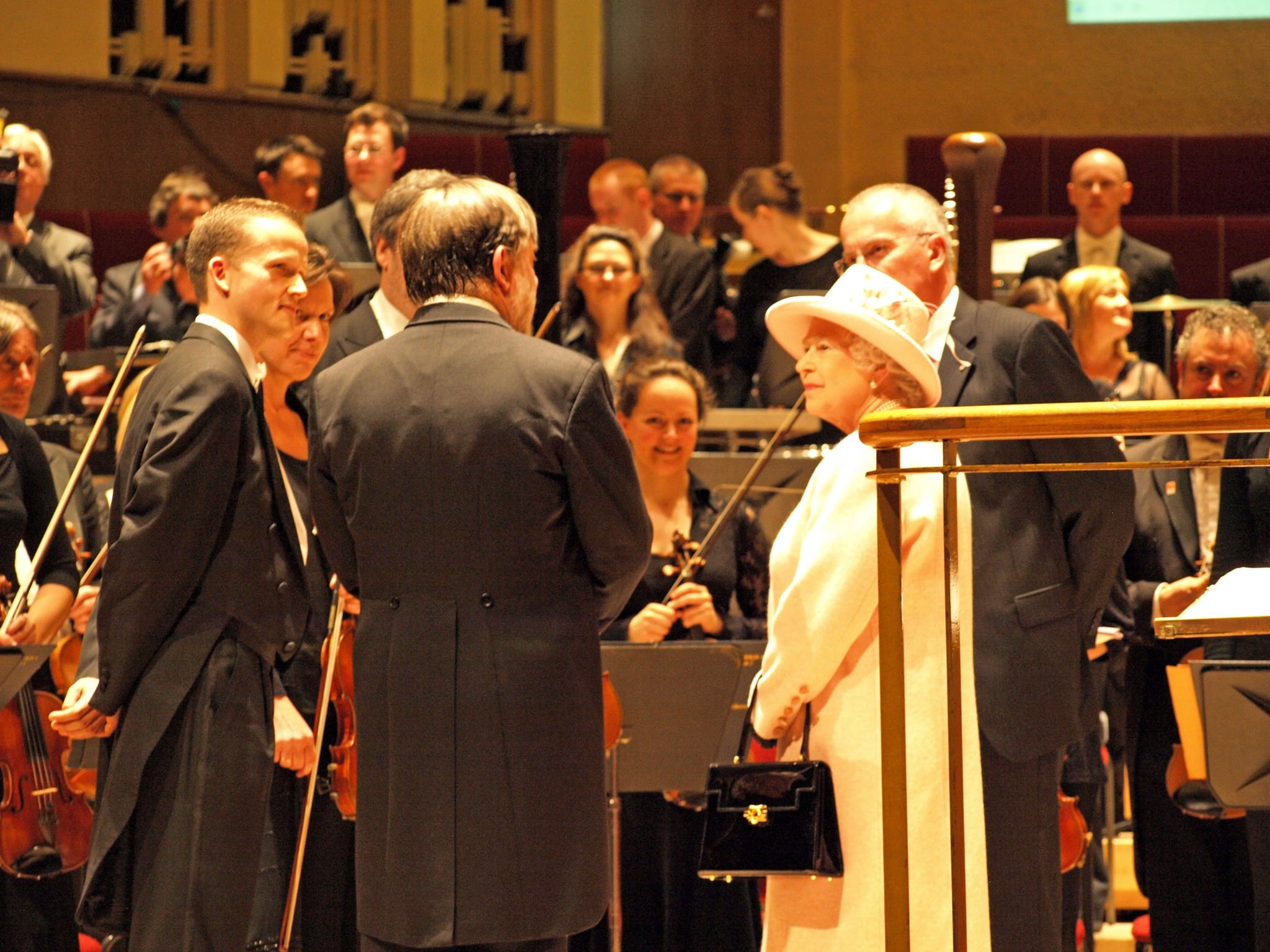
I have never forgotten Lupu’s performance in the 1969 Leeds Final of Beethoven’s PC3, in particular his almost whispered coda to the first movement. It sounds as though this effect was recreated in this performance of PC4 . A magical pianist – I do hope it is not his farewell
Christopher, you are a very lucky man – I can only imagine the performance you just described. I did hear him, though, in 2010 in Geneva playing B’s PC5 with Marek Janowski and the Orchestre de la Suisse Romande. It was an interesting interpretation, although I felt his approach was more suitable to PCs 3 & 4 – very lyrical and improvisatory. What bothered me was that it lacked heroism and force I associate with the Emperor Concerto. Needless to say, I still consider Lupu a great pianist.
There is a series of Youtubes of live concerts he gave in Bristol in 1976. The B3 is worth listening to because the effect he produced at the end of the first movt is very much what I remember from Leeds 1969 : quite unlike anything I had hear before or since
His is one of the finest Kreislerianas and Kinderszenen on record. Not to say his Schubert Impromptus. One of the finest magicians, in the truest sense.
Agree. And I love this:
https://www.youtube.com/watch?v=1h4Re5WBEAc
Just out of curiosity, who and why would give this comment 4 fingers down? Trolls?…It’s only an opinion, and it’s an opinion I totally share (!)
I am very sorry to have missed Lupu last weekend, but as both reviews stated, it was impossible to get a ticket. The concert was sold out long time in advance.
I did attend Kissin’s recital at the Barbican on Wednesday, certainly one of the strangest events I have been to. Does anybody here have inside knowledge of what actually transpired? I sat in front and could hear that the beeping sound during Debussy’s first two Preludes was coming from one of the front rows on the left. The people there looked at each other, but nobody could figure out where the sound was coming from. After the first Prelude, the security guy stepped in through the stage door, but seemed clueless, too. After the second Prelude, the sound mysteriously disappeared.
The second interruption, when Kissin was escorted off the stage was even stranger. I initially thought that they must have received some kind of terror threat (related to his support of Israel) and stopped the recital in order to prevent an incident. When the security guy put the yellow tape in front of the stage door, this made me even more suspicious. Later the recital was resumed with the explanation that there was a medical emergency, however, I find it hard to imagine that they would interrupt the recital and escort him of the stage for such a prosaic cause. On my way out I spoke to an usher and she repeated the same story, claiming that there was a medical emergency at the circle. Is anybody here that actually sat at the circle and saw the medics? If not, does anybody have any inside information related to the causes of these unusual interruptions?
Mystery solved: https://www.ft.com/content/59644404-2ac1-11e9-9222-7024d72222bc
Thanks, but it’s behind the paywall.
OK, I cracked it. Thanks again!
So….what’s the answer?
They stick with the official story line (electronic noises – medical emergency), but I am not completely buying it. Two significant interruptions within less than 20 min may be a coincidence, but this is hard for me to believe. I have been at the concerts where people were ill and taken out by medics, but the event was not stopped – and the venues were smaller than the Barbican. I wouldn’t be surprised if they were covering up the real cause so not to create panic and feeling of insecurity, which may decrease future ticket sales. They may also be protecting those that can not be touched as is the case with the German media. I am not a conspiracy theorist, but certain coincidences are difficult to ignore.
How?
“How?”
A simple SQL injection (q=%s:=’topic’) using your Internet’s db of choice will do the trick.
“OK, I cracked it.”
I “cracked” it, too.
Only the first sentence “covers” the incidents: The concert was “disturbed […] by electronic noises-off” and “a medical emergency in the audience”.
Paywall.
Here’s how I read it:
• Go to the article; get blocked by paywall
• Copy the URL
• Paste the URL into a new tab or browser window
I learned this from a similar post that someone else put up on Slipped Disc a couple of years ago; so thank you, whoever you were. It works for most paywalled articles.
paywall. Please could somebody paraphrase what was written re: Kissin. Thanks
Paid by Mexicans?
It only says there was a medical emergency in the audience.
As a musician onstage, I have witnessed two medical emergencies in the audience. In neither case was the concert interrupted, although in my examples it was a symphony concert, nowhere near as intimate (or probably as good) as a piano recital by Kissin.
What? I’ve read the FT review. It doesn’t explain anything.
Norman, please give us a summary of what happened. You subscribe to Financial Times but I have no reason to. Thanks in advance.
The performance was so magical that the missed notes almost didn’t matter. I shed a few tears after his encore of Brahms’ Intermezzo in E flat from Op. 117, especially because it had been an emotional week for me. I don’t think I’ve heard any other pianist who plays with the quiet intensity he does…
I cherish his recording of the late Brahms. Desert island — along now with the Volodos.
A truly introspective and sensitive artist. He early Schubert and Brahms recording is still one of my favorite LPs. We shared a few breakfasts quietly in the Hotel Continental in Oslo 25 years ago. I was not so sure he still enjoyed the rigor of touring based on our conversation, but he played a beautifully reflective Schumann Concerto with the Oslo Philharmonic. I wish him long and healthy years to come. New recordings perhaps?
Radu was in London at Wigmore Hall to play part of a memorial concert for his manager, Terry Harrison:
http://andretchaikowsky.com/miscellaneous/index.htm#terry
Those of us who were there remember it well.
Then, Radu was also a hero in the life of Andre Tchaikowsky, playing the world premiere of Andre’s Opus 4 piano concerto. You can hear Radu speak about this concerto in a radio program, hosted by David Owen Norris:
http://andretchaikowsky.com/composer/mp3s/study_in_contrasts_opus_4.mp3
Altogether, a wonderful talent and friend to many.
In 2015 I went to a concert at Teatro alla Scala which I´ll cherish for the rest of my life. Radu Lupu playing Beethoven concerto no. 4 with the Cleveland Orchestra conducted by Welser-Möst. The encore was to die for and I couldn´t believe my eyes when I found it on You Tube.
https://www.youtube.com/watch?v=pkb3S0qyKek
Magician in his prime.
But for whatever reason—he couldn’t be arsed, fatigue, nerves—who knows, his Mozart Concerto with Philly at Carnegie was soporific.
A little young to hang them up, unless I’m missing something.
Too many hang on too long.
I remember arriving at the RFH sometime in the 1980s(?) for an eagerly anticipote Dvorak Violin Concerto with Anne-Sophie Mutter, to be greeted by the dreaded notice: “A-S Mutter, indisposed, will be reploce by Radu Lupu in Beet 4th.” I was furious, especially as no reason was given, and altho i love Beet4th concerto, it’s something often heard, while the Dvorak…… However, i had my ticket, was already there, so, still fuming, grimly accepted my lot. From the first instant of Radu Lupu touching the keyboard, all my fury and frustration evaporote, all became calm and beautiful….a magical transformation, unforgettable. At his best, a great artist.
(After the concert i met the first oboist on his way out; he told me that A-S had tripped over her dog while out jogging! She’d bruised her arm, so was genuinely incapacitote. All was forgiven!)
First-world problems
I can still remember Radu Lupu’s Los Angeles Philharmonic debut with then-Music Director Zubin Mehta…it must have been in the early 1970s, and it was the Beethoven G-major Concerto (the second “half” of the concert was Mahler’s Sixth). The poetry already ran deep in him, and has blossomed beautifully over time.
“The solo opening of the (Beethoven G-major) concerto, hushed, poetic, sinewy, heralded an account of daring intimacy, dense with risk. Lupu allows nerve-shattering pauses. This has no connection with the missed notes or insecure passagework or, in one instance, a time lapse between soloist and orchestra. He has always played with an improvisatory quality, as if taking aural dictation from the ether. As a younger man, flowing black hair and beard, he seemed like someone from a Russian novel. Now he’s the hermit, frail beyond his years, down from the mountain bearing wisdom.”
What embarrassingly pretentious sophomoric writing, saying absolutely nothing. Was this imbecilic hack paid for this purple drivel?
It says rather a lot. It says “the pianist missed lots of notes, missed an entrance, and played the passagework poorly”. But the audience clapped his memory. That is all they wanted.
Everybody who was present at that concert is entitled to their own opinion. I just find it very odd, to put it no stronger, that a pianist who played as many wrong notes and missed as many as Lupu did, and was almost inaudible over wide stretches of his performance, is celebrated by so many critics. It’s a case of the Emperor’s new clothes all over again. Anybody else, and with nothing like the name and reputation Lupu has built up, would have been dismissed for giving such a pitiful performance. And, by the way, the Brahms Intermezzo he played as an encore is neither a lullaby nor the accompaniment to a funeral cortège. Having heard Lupu many times in his heyday I have to say that this a demonstration of the dictum that some pianists age well, others don’t.
I was there too. I was perplexed by the standing ovation and the devotion of critics and audience. I thought the performance was a little sad. Lets remember Lupu in his prime.
Radu Lupu can bring out the essence of the music, without effort it seems. He teaches one to listen. Import isn’t it? Listening, whether it’s music or just someone that needs to know someone will listen to their story.
Is there something in the air in Romania? (just a silly question)
Did someone from up high dazzle around a little bit of magic left over from some magical spell doled out when the Universe was created?
Or is it just the gypsy soul that somehow survives.
Romania has musical talents that seem to be from somewhere magical.
Clara Haskil is unsurpassable, and just about every pianist of note mentions his or her love for her.
And then there’s her friendDinu Lipatti who there’s nothing one needs to say about. He’s an eternal legend.
And Radu Lupu, Gheorgiu; and I just heard last night Andrei Ionita.
Not only does the whole complete hall light up when he plays the cello (what I haven’t heard since Dupres), but after his first encore the whole audience burst out whistling and roaring with joy. And one can only conclude that Classical Music isn’t dead, despite everything.
I have to tell you that he played Tchaikovski’s Andante for Cello. After the Rococo variations. And just before he started I remembered a conversation I had with Tchaikovsky, something that hadn’t hit me till then, if you can believe it. How did I have a conversation with Tchaikovsky when he’s also reported to be dead? It was through a medium, in fact I talked with him twice, but the second time I asked him about his suicide. And he confirmed that. He said that the last two years of his life were so difficult that when something happened it was the last straw. What happened? What most people here know: Tchaikovsky was homosexual. He had that ability to make love. Something that Russia now even denies. And I think then it was against the law. He told me that he was discovered, and someone made a sarcastic remark, that he should commit suicide. He didn’t really tell me anything more, like whether he could have been put in jail otherwise, or executed or murdered, or who knows what.
And in regards the whole drama, Piotr was real good about it. Instead of dwelling on himself he told me I’d make it, but…..
The emotion hadn’t really hit me till last night. Probably because it was safe. Such feelings can be so devastating that they go into hiding. I don’t get it. How is this possible? Someone who already is highly HIGHLY persecuted against, just because of the love he feels for another human being. A whole system that suppresses that for who knows why, and then someone makes a sarcastic remark instead of having compassion with the so human condition of love.
I had to stop myself from crying, or even shouting out, screaming even, I suppose. The potential was there anyhow. Still on the way home on the bus. And I haven’t really even shed a tear until now, which gently went sliding down my cheek. Like what I heard from the medium upon waking up, after I had talked to Tchaikovsky. The medium said: “there are tears…..”
https://www.youtube.com/watch?v=PXX8HiW2CRg&fmt=16
I have to add that the conversation with Tchaikovsky was longer ago than the age of Andrei. I think 29 years ago.
It also was a bit shocked even at….
So see the intelligent calm dedication that this artist had. And then when he plays an encore that’s more of a show off piece, to see the audience explode (well I guess that’s what they’re supposed to do), but it’s so much already seeming to be about entertainment rather than art, makes me wonder whether someone can survive having to supply such a commodity
One of THE BEST pianists of our lifetime. Heard him with Boston Symphony many years ago and have tracked his intensity and beautiful playing since. I didnt get to these concerts. How lucky were those audiences. Bravo Radu Lupe! Legend.
Radu Lupu made one of the greatest impressions on me as a teenager – back in the 70s, I think! I had an LP, which included Brahms Op.117 and an amazing Schubert A minor sonata (memory may not be what it once was!). What struck me was the amazing tone control. So, with some excitement and enthusiasm, I bought a ticket for his recital at Marlborough College. It was the most wonderful evening – there was a power cut (possibly as a result of the 3-day week?), so he played in candlelight, either side of the piano. I can see the scene in my mind now! Again, the tone control and expressiveness of his playing left a very deep impression on me, especially as I had cause to know that the action of the Steinway grand was rather hard work. A stunning evening that inspired me to continue to be involved with classical music for the rest of my life. I shall forever be grateful for that sublime evening.
When did Lupu announce that he’ll retire – as the “farewell” title suggests?
I too remember the magic of Radu Lupu in his former days. It is a most dangerous thing when one focuses on the performer as against the music, which sadly many of your respondents do ! I attended this concert, and it was sadly all about Radu Lupu, and very little to do with Beethoven. The music never surfaced beyond mezzo piano, there were weird idiosyncrasies not written in the original Beethoven score, way beyond artistic license. I can excuse missed notes, we are all human and we all do it, but I can’t excuse a great artist being so self indulgent in his interpretation. Radu clearly has an audience that will love what ever he does, this is the domain of a “Fan”, but little to do with great music making. I will continue to enjoy Radu as I remember him in his former years, this concert bears no relation to then.
I wasn’t at the concert, but I suggest that some of the negative commenters should approach listening to music with the RCM’s motto in mind – “The letter killeth, but the spirit giveth life”.
I too have to remind myself of this regularly: it’s a product of the sometimes clinical editing of studio recordings.
When I experienced RL as a listener and a performer – mostly in 1980s and 1990s – his playing always impressed me as a continuous meditation of a wise musical mind.
I feel very sad for him. He has been a great musician and pianist, a treasure for the world.